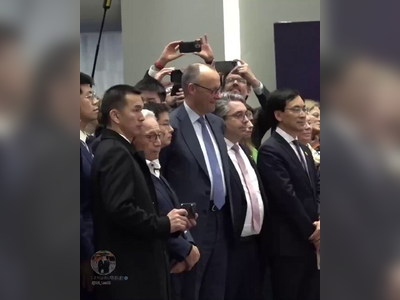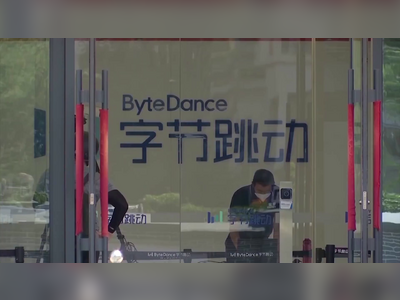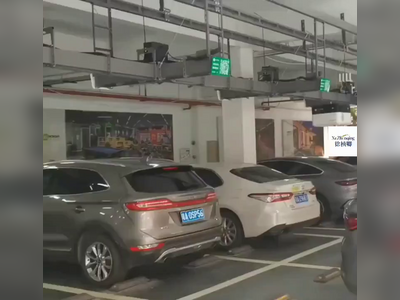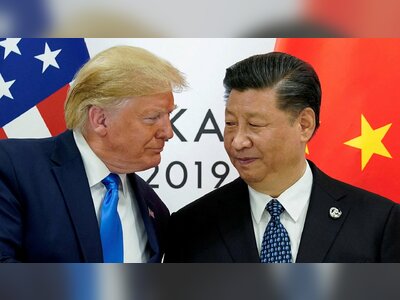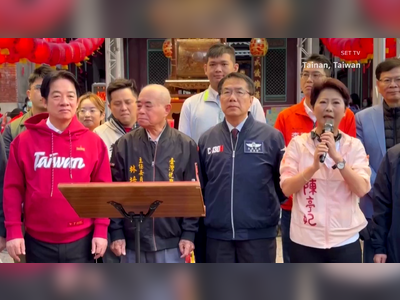
Artificial Intelligence Revolutionizes Agriculture in China
AI technologies are transforming farming practices, enhancing productivity, and supporting food security across the nation.
Efforts to integrate artificial intelligence (AI) into agriculture have gained significant momentum in China, with the introduction of advanced technologies reshaping farming practices, enhancing productivity, and promoting food security.
The adoption of AI is evident in various regions, where it is being employed in activities ranging from crop breeding to autonomous farming operations.
In Jilin Province, a robot is deployed in cornfields in Gongzhuling city, gathering high-resolution images that reflect the advantages of AI in agriculture.
Chen Jian, a professor at China Agricultural University, highlights that AI has expedited the development of new crop varieties.
Previously, breeding practices required extensive manual observation and experimentation in the field, a process that was both labor-intensive and time-consuming.
Now, AI-enabled robots can conduct preliminary screenings of plants, swiftly identifying those that exhibit desirable traits—such as high yield or disease resistance—before further lab testing.
These intelligent systems allow a single robot to inspect an area of approximately 2.5 mu (about 0.17 hectares) per hour, vastly improving productivity.
The ability to automate the initial stages of crop evaluation not only speeds up the breeding cycle but also reduces the number of plants that require laboratory testing.
AI's impact extends beyond breeding.
In Zhenjiang, Jiangsu Province, unmanned farming operations are changing traditional agriculture.
Xia Hongyu, general manager of Jurong Chuntian Ecological Agriculture Development Co., Ltd., reports that advancements in high-precision positioning technologies, such as Beidou and 5G, have allowed machinery to autonomously navigate and manage farming tasks without the need for manual route mapping.
In pest control and weed management, AI systems utilize image recognition capabilities to monitor crop growth and evaluate pest infestations with greater accuracy and speed than human assessment.
The proliferation of agricultural drones, equipped with AI, exemplifies this shift, as these devices now perform various critical functions including pesticide spraying, fertilization, and monitoring of disaster areas.
China's agricultural sector currently boasts more than 200,000 operational agricultural drones, which are serving over 400 million mu of farmland.
The Ministry of Agriculture and Rural Affairs has collaborated with Tencent to promote the use of AI in rural areas, offering training programs over three years aimed at enhancing the technological skills of personnel involved in agricultural governance and business operations.
AI technologies are also playing a transformative role in post-harvest processes, logistics, and market operations.
In Guangxi Zhuang Autonomous Region, local lychee producers have faced challenges related to preservation and logistics that affected sales and farmer profits.
By employing AI image recognition technology, producers can classify lychees based on size and color, optimizing their marketing strategies.
Additionally, intelligent algorithms facilitate real-time matching of orders with inventory, ensuring freshness for consumers.
China's commitment to integrating technology into farming aligns with its broader agricultural modernization objectives as demonstrated in the recently unveiled 10-year agricultural master plan.
The plan focuses on achieving national food security through enhanced agricultural productivity and innovation, with specific targets set to ensure a robust supply of staple crops.
Key objectives include maintaining a grain production capacity of 700 million tons, achieving higher self-sufficiency in critical agricultural products, and enhancing the quality of food supply chains across the country.
Agricultural modernization will also encompass significant upgrades to farm machinery and the development of intelligent agricultural practices, incorporating technologies such as IoT, big data, and AI.
As these efforts continue, the Chinese government has emphasized the importance of technological independence in key agricultural sectors, particularly in seed development, reinforcing the strategy to secure food production through innovative breeding techniques and sustainable practices.
The adoption of AI is evident in various regions, where it is being employed in activities ranging from crop breeding to autonomous farming operations.
In Jilin Province, a robot is deployed in cornfields in Gongzhuling city, gathering high-resolution images that reflect the advantages of AI in agriculture.
Chen Jian, a professor at China Agricultural University, highlights that AI has expedited the development of new crop varieties.
Previously, breeding practices required extensive manual observation and experimentation in the field, a process that was both labor-intensive and time-consuming.
Now, AI-enabled robots can conduct preliminary screenings of plants, swiftly identifying those that exhibit desirable traits—such as high yield or disease resistance—before further lab testing.
These intelligent systems allow a single robot to inspect an area of approximately 2.5 mu (about 0.17 hectares) per hour, vastly improving productivity.
The ability to automate the initial stages of crop evaluation not only speeds up the breeding cycle but also reduces the number of plants that require laboratory testing.
AI's impact extends beyond breeding.
In Zhenjiang, Jiangsu Province, unmanned farming operations are changing traditional agriculture.
Xia Hongyu, general manager of Jurong Chuntian Ecological Agriculture Development Co., Ltd., reports that advancements in high-precision positioning technologies, such as Beidou and 5G, have allowed machinery to autonomously navigate and manage farming tasks without the need for manual route mapping.
In pest control and weed management, AI systems utilize image recognition capabilities to monitor crop growth and evaluate pest infestations with greater accuracy and speed than human assessment.
The proliferation of agricultural drones, equipped with AI, exemplifies this shift, as these devices now perform various critical functions including pesticide spraying, fertilization, and monitoring of disaster areas.
China's agricultural sector currently boasts more than 200,000 operational agricultural drones, which are serving over 400 million mu of farmland.
The Ministry of Agriculture and Rural Affairs has collaborated with Tencent to promote the use of AI in rural areas, offering training programs over three years aimed at enhancing the technological skills of personnel involved in agricultural governance and business operations.
AI technologies are also playing a transformative role in post-harvest processes, logistics, and market operations.
In Guangxi Zhuang Autonomous Region, local lychee producers have faced challenges related to preservation and logistics that affected sales and farmer profits.
By employing AI image recognition technology, producers can classify lychees based on size and color, optimizing their marketing strategies.
Additionally, intelligent algorithms facilitate real-time matching of orders with inventory, ensuring freshness for consumers.
China's commitment to integrating technology into farming aligns with its broader agricultural modernization objectives as demonstrated in the recently unveiled 10-year agricultural master plan.
The plan focuses on achieving national food security through enhanced agricultural productivity and innovation, with specific targets set to ensure a robust supply of staple crops.
Key objectives include maintaining a grain production capacity of 700 million tons, achieving higher self-sufficiency in critical agricultural products, and enhancing the quality of food supply chains across the country.
Agricultural modernization will also encompass significant upgrades to farm machinery and the development of intelligent agricultural practices, incorporating technologies such as IoT, big data, and AI.
As these efforts continue, the Chinese government has emphasized the importance of technological independence in key agricultural sectors, particularly in seed development, reinforcing the strategy to secure food production through innovative breeding techniques and sustainable practices.
AI Disclaimer: An advanced artificial intelligence (AI) system generated the content of this page on its own. This innovative technology conducts extensive research from a variety of reliable sources, performs rigorous fact-checking and verification, cleans up and balances biased or manipulated content, and presents a minimal factual summary that is just enough yet essential for you to function as an informed and educated citizen. Please keep in mind, however, that this system is an evolving technology, and as a result, the article may contain accidental inaccuracies or errors. We urge you to help us improve our site by reporting any inaccuracies you find using the "Contact Us" link at the bottom of this page. Your helpful feedback helps us improve our system and deliver more precise content. When you find an article of interest here, please look for the full and extensive coverage of this topic in traditional news sources, as they are written by professional journalists that we try to support, not replace. We appreciate your understanding and assistance.
